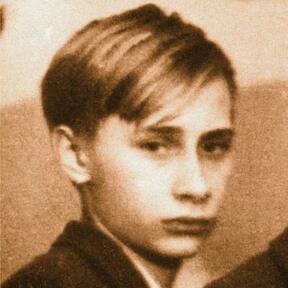On Short’s Putin-biography – Peter Baker in NYT:
‘Was that Putin’s fault or ours? Did we misjudge him or did we mislead him? Was it inevitable that Putin would come to see himself as a latter-day Peter the Great seeking to re-establish the czarist empire or could we have done more to anchor a post-Soviet Russia in the community of nations? Never have those questions been more profoundly relevant. Now weighing into the debate is the British journalist Philip Short, with his expansive new biography, “Putin,” which sees the rift between East and West largely through the eyes of its protagonist.’
(…)
‘He plumbs an array of sources, including his own interviews, to reconstruct the tale of a street brawler from a bleak communal apartment in postwar Leningrad who embarks on a mediocre career as a midlevel K.G.B. officer in East Germany only to make a stunning leap to power in Moscow following the chaos of 1990s post-Soviet Russia.
Short, a former journalist with the BBC, The Economist and The Times of London, adds to the library of insightful books about the Russian autocrat, including “The New Tsar,” by Steven Lee Myers; “Mr. Putin,” by Fiona Hill and Clifford G. Gaddy; “The Man Without a Face,” by Masha Gessen; and “Putin’s World,” by Angela Stent. But unlike those Russia specialists, he comes to his subject as a chronicler of some of history’s biggest villains, having written biographies of Pol Pot and Mao Zedong.
As critics observed about those volumes, Short’s determination to present a fully realized portrait of Putin may strike some as excessively sympathetic. “The purpose of this book is neither to demonize Putin — he is more than capable of doing that himself — nor to absolve him of his crimes,” Short writes, “but to explore his personality, to understand what motivates him and how he has become the leader that he is.”
In fact, he does absolve Putin of several crimes. Short opens with an extended examination of the never-solved apartment bombings of 1999 that were blamed on Chechen terrorists but suspected of being a government conspiracy to cement Putin’s path to power. Short exonerates Putin. He may be right; no one has ever definitively proved the case. But it is a curious way to start a book about an autocrat who is currently bombing plenty of other apartments in Ukraine. He likewise absolves Putin of notorious political attacks against the likes of Sergei Skripal, Anna Politkovskaya and Boris Nemtsov, while allowing that he probably was responsible for the gruesome poisoning of Alexander Litvinenko in London.’
(…)
‘More debatable may be some of his conclusions in which he adopts the Russian view. He equates Putin’s forcible annexation of Crimea to Western support for Kosovo’s independence, dismissing differences between the two as “nuances.” Indeed, Kosovo is one of “the West’s three cardinal sins” in Putin’s eyes “that had destroyed both sides’ hopes of building a better, more peaceful world after the collapse of the Soviet Union” (along with withdrawing from the Antiballistic Missile treaty and expanding NATO). Every Russian outrage is likened to some Western perfidy. Yes, the Russians interfered in the 2016 election but “the United States had done the same.” The deterioration in relations had a certain “inevitability” that was “largely the result of a series of Western, essentially American, decisions.” Short advances the Russian argument that America betrayed a “promise” by Secretary of State James A. Baker III in 1990 that NATO jurisdiction would not move “one inch to the east.” In fact, there was no promise. Baker floated the idea during negotiations over reunification of Germany but later walked it back, and no such commitment was included in the resulting treaty that did extend NATO to East Germany with Moscow’s assent.’
(…)
‘Short recounts Putin’s memory of his meeting with Vice President Joe Biden in 2011.
“Don’t be under any illusion,” he told the future president. “We only look like you. … Russians and Americans resemble each other physically. But inside we have very different values.”’
Read the review here.
Different values, maybe, but the Russians don’t seem to be sure that there is such a thing as Russian values given the fact that the intelligentsia largely moved out of the country.
And Americans are definitely nor sure about their values after Trump and the conspiracy theories that took over the Republican Party, a process that was in the making at least since Reagan. Not that the Democrats are free of sins.
I was intrigued by the paragraph about Kosovo, a largely forgotten country. I was there in 2006. Recently Kosovo became world news again, see here. Mitrovica was back then a divided and tense city, apparently it still is.
And back in 2019 people in Sarajevo told me: ‘It can explode here very easily again.’
For Putin, Kosovo is one of the cardinal sins of the West. The wars in Yugoslavia pitted the West against Russia, Germany against France, and the NATO could only bomb Belgrade because Serbia didn’t have nuclear bombs.
The delusions and grievances of Karadžić and Milošević are not that different from Putin’s grievances and delusions, but Putin wants to be Russia an empire again not a regional power and he has nuclear weapons.
That’s why he will never end up in The Hague, unlike Karadžić and Milošević.
